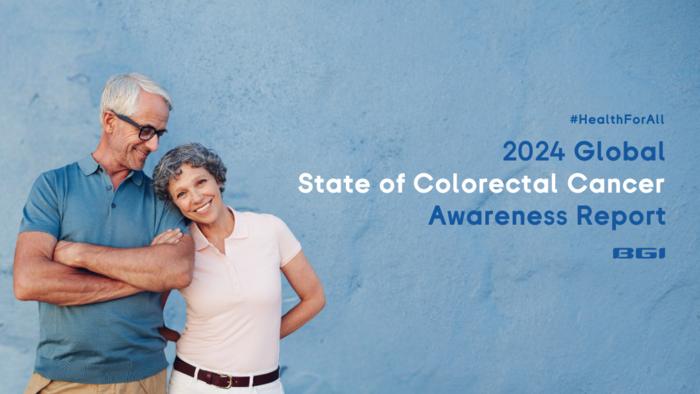
Over 60% of Uruguayans urge for more information about colorectal cancer
According to research published on Psicologia Reflexão e Crítica, Uruguay has the highest colorectal cancer (CRC) incidence rates among Latin American countries. CRC is the leading cause of cancer death in Uruguay, yet there remains a significant lack of awareness in Uruguayan society.

Credit: BGI Genomics
According to research published on Psicologia Reflexão e Crítica, Uruguay has the highest colorectal cancer (CRC) incidence rates among Latin American countries. CRC is the leading cause of cancer death in Uruguay, yet there remains a significant lack of awareness in Uruguayan society.
By 2040, the burden of global colorectal cancer is projected to increase to 3.2 million new cases and 1.6 million deaths per year representing a 66% and 71% rise in new cases and deaths respectively relative to 2020.
To better address the global burden of CRC and reduce its impact, BGI Genomics has launched the second edition of its global colorectal cancer awareness report, covering 1,938 respondents aged above 35 years old from Brazil (306), China (367), Poland (300), Saudi Arabia (300), Thailand (362), and Uruguay (303):
CRC Screening Gaps Vary Globally: Over half of Uruguayans (55.5%) never had a CRC screening, higher than the global average of 49.3%. Additionally, Uruguay has the largest awareness gap for CRC among the surveyed countries. 60.1% of Uruguayans believe there is not enough information available about CRC.
Preference for Fecal Testing Over Colonoscopy: Colonoscopies rank as the best-known screening method worldwide at 33.4%, with fecal testing at a healthcare facility ranking second at 27.0%. However, fecal testing at a healthcare facility is the screening method most widely accepted by respondents (31.8%) ranking slightly above colonoscopies (31.3%).
Cost and Fear as Determinants in Screening Choices: Fear of colonoscopy (21%) and fear of the result (16.5%) are the leading factors that holding Uruguayans back from CRC screening. Uruguayans (54.1%) mostly preferred inexpensive priced screening options.
Medical Advice and Family History Drive CRC Screening: Uruguay has the highest proportion of respondents (44.1%) choosing to take their doctors’ advice. 62% of Uruguayans with CRC family history taken their family members for screening, compared to only 29% of all Uruguayans.
For more region-level comparisons, access the full BGI Genomics 2024 State of CRC Awareness Report.
All data involved in this report come from the results of an online survey project conducted by BGI Genomics. It only surveys awareness related to colorectal cancer and does not involve personally identifiable data.
About BGI Genomics and COLOTECT
BGI Genomics, headquartered in Shenzhen, China, is the world’s leading integrated solutions provider of precision medicine. In July 2017, as a subsidiary of BGI Group, BGI Genomics (300676.SZ) was officially listed on the Shenzhen Stock Exchange.
COLOTECT is a non-invasive fecal DNA test developed by BGI Genomics for detecting CRC and precancerous lesions. It uses multiplex methylation-specific PCR (MSP) technology to trace abnormal DNA-methylation biomarkers in CRC from stool samples. It has 88% CRC sensitivity, and for early detection, its sensitivity for advanced adenoma is 46%, which are both superior to conventional fecal tests.